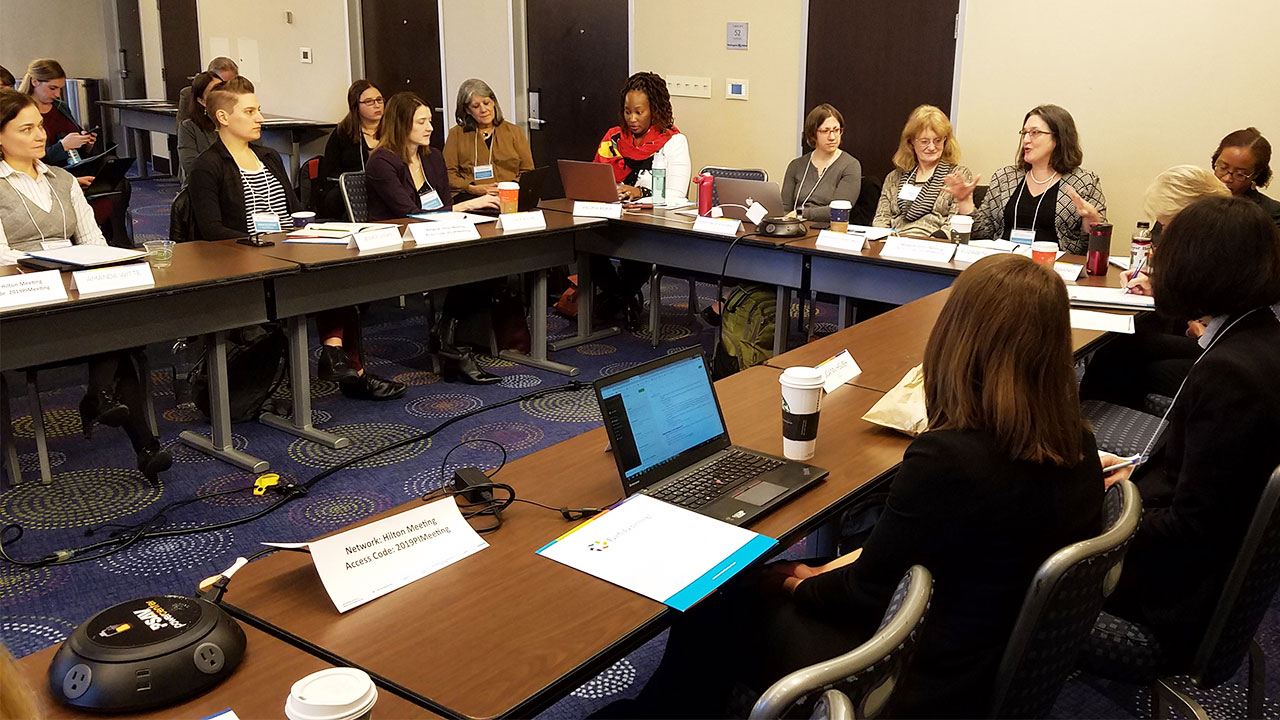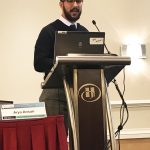23 Jan Teams share preliminary findings, cross-cutting themes at January meetings

Early Learning Network Principal Investigators Meeting
Researchers from the Early Learning Network convened Jan. 8 in Washington, D.C. to share updates on the network’s nationwide studies and discuss strategies for synthesizing the important early childhood education data gathered by network research teams.
Attendees included 15 network representatives from the five research teams and the assessment team. An additional 19 federal representatives attended from the departments of Education and Health and Human Services, and the Institute of Education Sciences.
Following introductory remarks from the National Center for Education Research’s Elizabeth Albro and Caroline Ebanks, the team members presented findings gleaned from the data collected during the preschool and kindergarten school years (2016-17 and 2017-18).
Below are some interesting findings drawn from the network’s kindergarten data:
- The University of California, Irvine assessment team reported that OLOS observations show substantial variability between and within classrooms, particularly in time spent on literacy.
- The University of North Carolina at Chapel Hill team is learning that children who do not attend pre-K tend to come from homes with higher maternal education, higher family income, smaller household sizes and proportionately fewer English Language Learners.
- The MDRC team is finding systematic variation in children’s experiences with instructional alignment. They noted that greater instructional alignment may promote greater gains in vocabulary across pre-K and kindergarten.
- In exploring the differences between pre-K attenders and non-attenders in the context of the kindergarten transition, the Ohio State University team is finding that boys and younger children tend to have the most transition difficulties.
- The University of Nebraska-Lincoln team is learning that communication between families and schools tends to decrease over time through preschool and kindergarten. Urban families tend to have higher family engagement levels than rural families.
- The University of Virginia team is finding that pre-K attenders who participated in a formal early childhood program at age 3 entered pre-K more academically ready; however, those advantages were not sustained over time.
Following the individual presentations, the teams reflected on the similarities and differences between their studies and populations, the broader implications for early education practice and policy, and future lines of inquiry to explore.
In smaller workgroups, the researchers discussed cross-cutting themes emerging from the research and potential collaboration opportunities to synthesize the various study findings, specifically regarding preschool participation, family engagement and individual children’s experiences.
The teams also gave updates on supplemental activities, including a new ELN Data Center that will pull together cross-site data sets.
Full 2019 IES Principal Investigators Meeting
The full 2019 IES Principal Investigators Meeting took place Jan. 10 and 11: “Critical Questions and Practical Solutions: Improving the Practice and Usefulness of Education Research Network.”
Representatives from the Early Learning Network presented the latest information from the network’s studies and the OLOS observation tool. View the slides from their presentation to see what the researchers are discovering about children’s early learning.
Next up: Early Learning Network teams will present at spring conferences hosted by the American Educational Research Association and the Society for Research in Child Development. The network’s annual meeting is scheduled for May 21 in Alexandria, Virginia.






